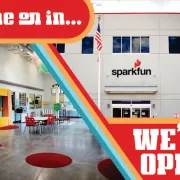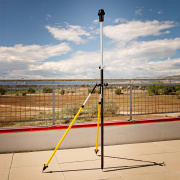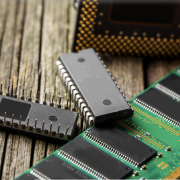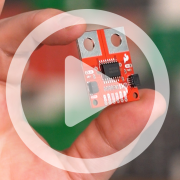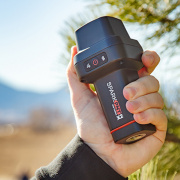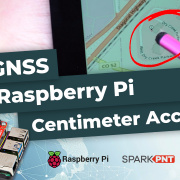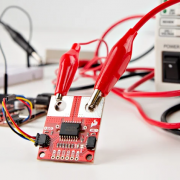FYSA
We have launched a new series on YouTube Shorts called Funny You Should Ask that covers common electronics terms and acronyms in under a minute.
What's I2C, LoRa, RTC, and VOCs & VSCs You Ask?
We have launched a new series on YouTube Shorts called Funny You Should Ask that covers common electronics terms and acronyms in under a minute.
We get asked regularly on our YouTube videos what certain terms mean in the electronics world. And, while it may seem obvious for some of our more seasoned viewers, terminology is changing so often and new concepts are popping up so regularly that many can’t keep up or tell the difference. So we decided to make a new series to help shed some light on all the electronics lingo. You can always ask the webs what something is, but it often doesn’t show you the concept with visuals from a reputable source and the AI-generated overview can be faulty - in comes SparkFun!
So, starting off with something relatively easy, we covered what concept of what I2C is. When you’re first starting out in electronics, I2C comes up all the time. The internet will forever be in a battle on how it is pronounced, eye-two-see or eye-squared-see, but regardless of who's right (we have our opinions), it is inter-integrated circuit and we covered what it is and how it’s used.
There is so much information out there on I2C, but hopefully this video gives you a good starting point to grasp the concept. To dive deeper into I2C, our Qwiic page covers this info in a lot more detail.
We jumped ahead a bit in a typical electronics journey, and covered what LoRa is. If you start dabbling in transferring data wirelessly, then distance becomes an important factor. LoRa comes into play as a concept people have to then research. LoRa stands for Long Range and we had Rob explain the concept and some use cases.
We've have had a few blogs cover LoRa in the past by utilizing new products that have pushed the boundary of just how long range some of these can transfer data. One in particular is the LoRa Thing Plus - expLoRaBLE board that Rob mentions.
How about VOCs and VSCs? VOCs are Volatile Organic Compounds and VSCs are Volatile Sulfur Compounds. Both found in various natural and man-made products. Rob goes over these compounds in this YouTube short but he also references the SparkFun Indoor Air Quality Sensor - ENS160 (Qwiic) and the SparkFun Environmental Sensor - BME688 (Qwiic) for analyzing the compounds.
We hear RTC often in electronics but what does Real Time Clock actually do? In this short, Pete explains how it works and how it is used in electronics.
The world of electronics and IoT is constantly changing and new acronyms are only making it more confusing, but hopefully this new series can shed some light on many of them. Keep an eye out for 2 releases every week over the next 10 weeks on our YouTube and social media channels (@sparkfun).
Also we’d love to hear from you on which terms or acronyms you’d like us to explain! Throw them in the comments below!
